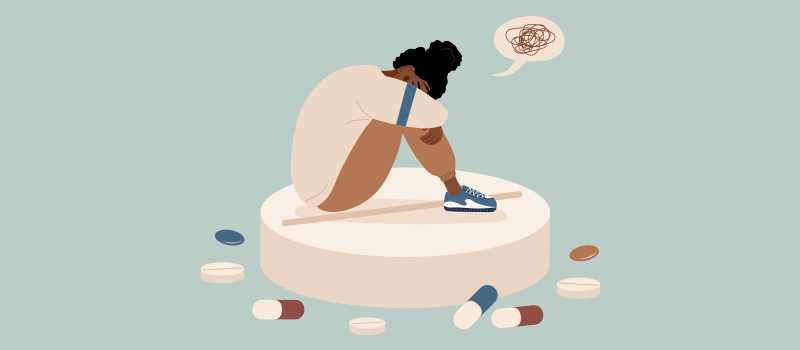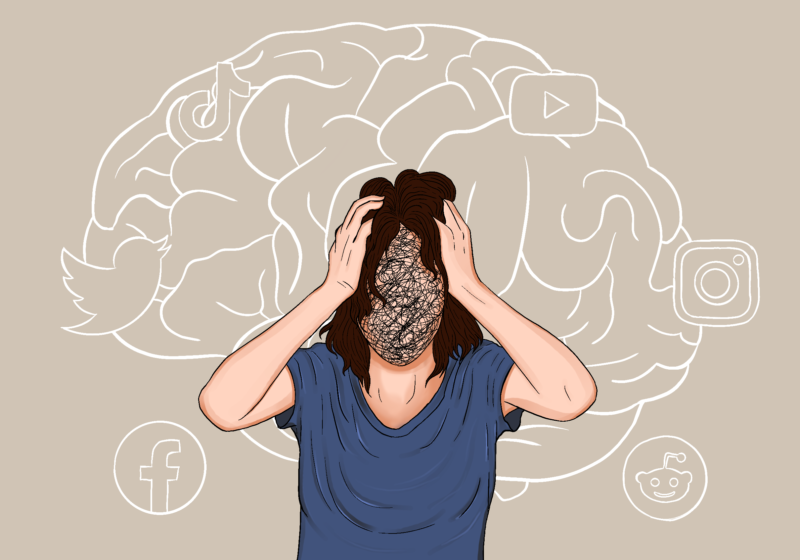In 2023, Mental Health America reported that almost 50% of American youth & adults experience a mental illness. Additionally, 4.8% of adults reported severe thoughts of suicide. If you’re facing similar challenges, like mental health issues or substance use problems, there are different choices, like going to therapy sessions, attending day programs, or joining intensive outpatient programs. However, for some people, these options might not be enough to help them get better completely. Hence, one of the best options that might be suggested is going to a residential treatment center. But what is Residential Treatment for mental health?
Dealing with a mental health problem is very challenging. It gets more complex daily to do everyday things as the situation worsens. Going to a private mental health doctor for help used to be enough to deal with the issues. But now, it might not be working as well anymore. This is where residential treatment comes in.
In this article, we will discuss residential treatment for mental health in detail, its benefits, and which program is right for you.
What is Residential Treatment for Mental Health?
Residential treatment for mental health is a specialized form of inpatient care that offers round-the-clock supervision in a non-hospital setting. Typically, it takes place in a live-in facility where individuals receive intensive therapeutic programs and treatment to cure mental health or substance abuse issues. Individuals may stay for weeks or months during residential treatment, bringing only essential belongings. The structured and safe environment and expert staff support can significantly aid recovery.
Various factors must be considered to determine if this program suits you or anyone in your family. Not every treatment approach is suitable for everyone.
Who is the best candidate for residential treatment?
While many people can find value in the organized and encouraging atmosphere provided by a residential treatment center, those who often benefit the most are individuals who:
- Have faced Complex Diagnostic or Treatment Issues
- Has Severe Addiction
- Needs supportive environment
- Has previously taken treatment
- Has re-occurring mental health disorder
- Faces Suicidal Thoughts
Why should you choose residential treatment over any other treatment?
Residential treatment isn’t just about getting sober; it’s much more. It helps you deal with past problems and develop good habits, giving you the support and structure you need to improve. You can escape things that make you feel bad, learn how to handle stress and deal with your feelings better. It’s a safe place to work through tough stuff and learn how to feel better.
Residential treatment offers a variety of different therapies, such as:
- Cognitive Behavioral Therapy
- Dialectical Behavioral Therapy
- Medication Treatment
- Support Groups
- Management Of Medication
- Individual and Group Therapy
Best programs for Residential Treatment
Several programs complement residential treatment to enhance the overall care experience:
- Outpatient Services
- Aftercare Programs
- Family Therapy
- Peer Support Groups
- Educational Workshops
These programs work best with residential treatment, offering comprehensive support and promoting long-term recovery.
What is the Residential Treatment Length?
Residential treatment programs usually vary in length. Residential treatment programs can be for a few weeks or several months, depending on the patient’s needs and the seriousness of their condition.
Throughout their stay, patients receive continuous care and support from mental health professionals, including psychiatrists, psychologists, and trained staff members.
What is a Residential Treatment Center?
Residential treatment centers provide intense care for complex mental health and addiction issues. Consider whether this program is the right fit for you or your family member before deciding. In the residential treatment center, you will get the following:
Intense Support: Residential treatment gives you non-stop help and focused therapy, making sure you get the care you need around the clock.
Safe Setting: Being in a structured environment helps you stay on track with your recovery from mental health or addiction issues.
Professional Help: With expert staff always assisting, residential treatment centers offer specialized support to fit your needs.
Types of Residential Treatment Centers:
There are different kinds of places where you can get help if you’re struggling with substance use or mental health issues.
Clinical Residential Treatment: This is like living in a home with others while getting daily therapy. You work on improving life skills, self-esteem, and relationships. They also help with educational and job support. You can stay for different lengths of time depending on your needs.
Group Residential Communities: These are similar to clinical residential treatment but happen in group homes.
Work- or Farm-Based Programs: Some places offer work or farm programs where you can learn skills while getting therapy.
Apartment-Based Communities: You live in apartments instead of a mental health facility but still get visits from therapists and other support.
These places offer various programs like detox, inpatient care, mental health treatment, and outpatient programs to help you manage your symptoms and improve your mental health.
Benefits Of Residential Treatment Centers in Florida
- Supportive Environment: Residential centers offer a nurturing community and structured setting for individuals with mental health issues.
- Enhanced Structure: Residents benefit from stable routines that assist with impulsivity and high-risk behaviors.
- Intensive Care: Longer-term programs provide comprehensive support for severe or complex conditions.
- Thorough Assessment: Advanced diagnostic tools ensure accurate evaluation and tailored treatment plans.
- Diverse Therapies: Residents access a wide range of therapeutic options within a supervised environment.
Alternatives to Residential Treatment
Despite the best results, Residential Treatment doesn’t suit everyone. Those with short-term or less severe issues may find outpatient treatment enough, while those with severe problems might need inpatient care.
However, for many, a balanced approach at a good residential treatment center offers the best chance of returning to a fulfilling life. It’s about finding the right residential treatment center for your needs.
FAQs- What is Residential Treatment for Mental Health
1. What is Residential Treatment for Mental Health?
Residential treatment is a mental health care where patients stay in a residential for an extended period, receiving 24-hour access to medical professionals and therapists who offer evidence-based therapies to address substance abuse or mental health concerns and support recovery.
2. How Do I Know If Residential Treatment Is Right for Me?
If you need intensive care for severe mental health or addiction issues and lack support, then seeking residential treatment is right for you. Always consult professionals in such cases.
3. What are the benefits of residential mental health treatment?
Residential programs provide support, focus, and pace, which can lead to demonstrated results in less time.
4. What do I do if I’m worried about my mental health?
If you’re worried about your mental health, you can talk to your general practitioner (GP), a therapist, or a mental health helpline.
5. How can families participate in residential mental health treatment?
Families can participate in residential mental health treatment by attending therapy sessions and collaborating on discharge plans with professionals. Seek a professional to get a detailed understanding of this.
Conclusion
Overall, Residential treatment for mental health serves as a crucial resource for contending with severe mental health or addiction issues. It delivers intensive, round-the-clock care within a structured, supportive setting. You can even get evidence-based therapies customized as per your requirements.
While not everyone necessitates residential treatment, it serves as a lifeline for those facing complex diagnostic or treatment hurdles, severe addiction, or recurrent mental health conditions, facilitating their journey to recovery.
Consult an expert to know the most suitable program for your mental state.









